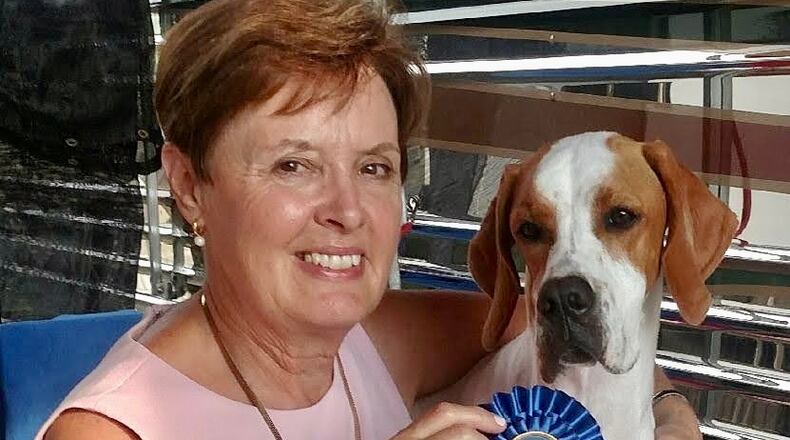Haines was named Veterinarian of the Year by the Ohio Veterinary Medical Association, the organization’s highest honor.
“Dr. Haines serves without fanfare or expectation,” said Ohio Veterinary Medical Association President Ed Biggie. “She embodies the qualities we aspire to be, not just as veterinarians, but as people.”
A 1983 graduate of The Ohio State University College of Veterinary Medicine, Haines was tapped by then-governor John Kasich to lead the formation of scientific laws and regulations governing commercial dog breeding.
Signed by Kasich in 2018, the laws banned some of the most cruel practices used by commercial dog breeders, or “puppy mills,” like stacking dogs in cages one on top of the other or keeping the animals in cages with wire flooring. The legislation also limited how many times a mother dog could be bred in a year, and required that dogs have access to proper food, water, exercise and veterinary care.
The laws were some of the most progressive animal cruelty legislation at the time, and made Ohio a “national leader” in preventing cruelty towards breeding dogs, according to the Humane Society.
“It gave Ohio a leadership role in the regulation of commercial breeding: regulations and rules that commercial breeders can abide by to improve the care and wellbeing of animals involved,” Haines said.
Demand for family dogs often doesn’t match the capability of a living, breathing animal. Puppies born in unregulated commercial breeding mills are often sick or inbred, which can lead to heartache and major veterinary costs, according to the Humane Society. Haines and her husband breed and exhibit Pointers, and her dogs are often sold two to three years in advance.
”People want pets today. And they will go where there’s a supply,” Haines said. “But if they get a puppy, we want it to be well taken care of.”
Haines has also supported the Ohio Veterinary Medical Association’s work in addressing the shortage of veterinarians in rural areas, and addressing the problem of veterinary suicide.
Male veterinarians are 2.1 times more likely than the general population to die by suicide and female veterinarians are 3.5 times more likely, according to Not One More Vet, an organization that researches mental health issues in the veterinary field. At the same time, clinics across the state have also seen a spike in demand for services.
“Veterinary medicine is very emotionally challenging,” Haines said. “Since COVID, it’s gotten very strange. Every practice you speak to is overwhelmed. In emergency facilities, its not unusual for them to have six- to eight-hour waiting lists.”
For families looking to adopt or buy a pet, Haines’ advice is to slow down the process, and buy from reputable breeders who care for their dogs well.
“Study the breeds, see what fits your lifestyle, and once you do that, search for breeders that do their homework, that do health testing on their animals. Go to their kennel, see who the parents are, see how they’re handled,” she said. “Be patient. It’s going to be somebody that joins your family.”
About the Author


